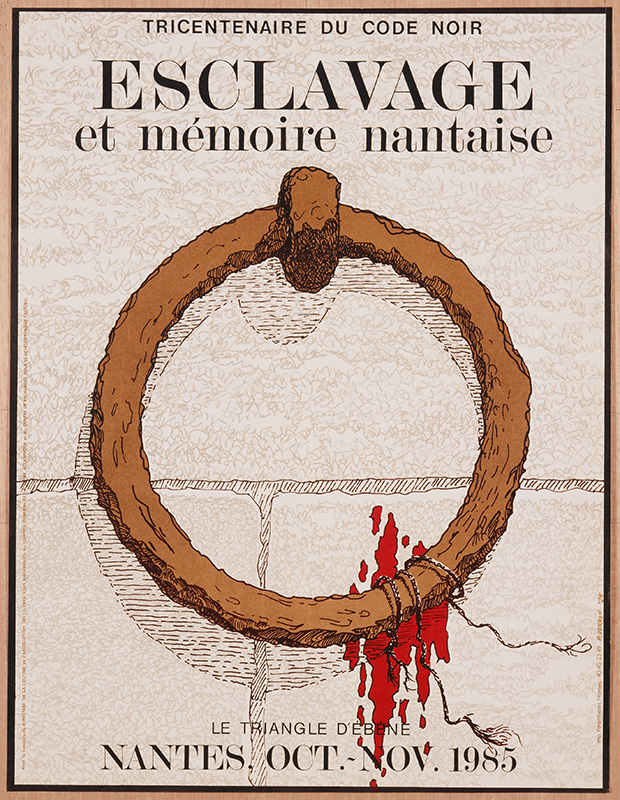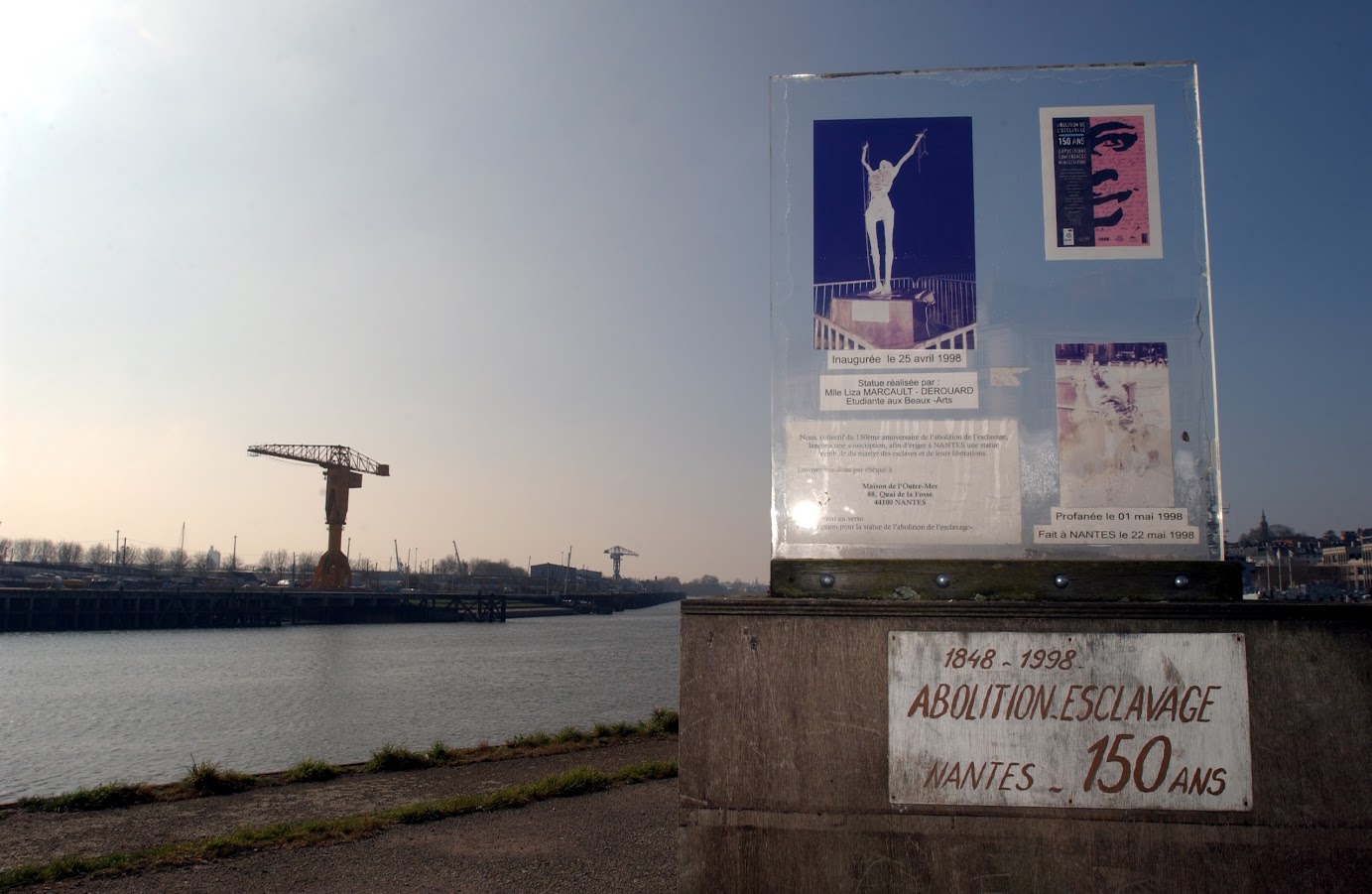Nantes and its memorial policy

As France’s leading slave-trading port in the 18th and 19th centuries, Nantes is now known throughout the world for its efforts to examine its historical relationship to the slave trade and slavery. Visitors can discover this history at the Château des ducs de Bretagne – Musée d’histoire de Nantes, the Memorial to the Abolition of Slavery, and by following the itinerary entitled “Nantes et la traite négrière” (“Nantes and the slave trade”). The city also supports Nantes-based associations, schools, and performing artistic companies that explore this theme throughout the year. This need to share and recognize different histories hopes to meet the challenge of building a more cohesive society through civic education. For, as we all know, the lessons of the past determine our choices and commitments to the present and to the future.
A look back at 40 years of commemorative policies
Since the 1980s, the once-taboo subject of the Atlantic slave trade has slowly been brought to light. Historians and associations were the first to work towards (re)exploring this chapter of our past.
1985
Organization of an international symposium on human trafficking in Nantes; a research program and cultural agenda were planned in concert with the symposium, but the municipality did not wish to finance it.

1992
France’s first temporary exhibition on the trans-Atlantic slave trade and slavery, “Les Anneaux de la Mémoire” took place in Nantes; this exhibition lasted over a year, was a success, and gave the public tools to learn about the trans-Atlantic slave trade and Nantes’ role in it.
April 1998
Creation of a collective federating eleven Nantes-based associations to celebrate the 150th anniversary of the abolition of slavery. On April 24, 1998, at the association Mémoire de l’Outre-mer (“Overseas Memory”) commissioned a commemorative sculpture that was unveiled on Quai de la Fosse. It was vandalized a few days later.

June 1998
Decision by city authorities to erect a commemorative work: the Memorial to the Abolition of Slavery.
May 10, 2006
First national day in remembrance of the slave trade, slavery, and its abolition. It was celebrated in Nantes by the city and associations.
2007
Inauguration of the Musée d’histoire de Nantes (Nantes History Museum), devoting several rooms of the permanent exhibition to the city’s past as a slave-trading port.
2007
Permanent installation of the public artwork “Les Anneaux” by Daniel Buren and Patrick Bouchain on Quai des Antilles, by Le Voyage à Nantes as part of the Estuaire itinerary.
Discover the artwork.

2012
Inauguration of the Memorial opens a new chapter in the recognition of Nantes’ past as a slave-trade port. Inauguration of an itinerary through the city, with 14 information panels on the slave trade, entitled “Nantes and the Slave Trade”.
2016
Policy of naming streets after historical figures who fought against slavery. In doing so, a constant form of vigilance against attacks on human dignity is established.
2018
First season of “Expression(s) à décoloniale(s)” at the Musée d’histoire de Nantes, offering a way to “decolonize our discourse, perception and imagination”.
2019
A study was conducted with roughly thirty municipal partners (associations, institutions, elected officials) on Nantes’ memorial policies regarding the history of the slave trade and slavery. The conclusions enabled us to re-establish the general framework for Nantes’ memorial policy, and formalize new collective projects throughout the region.
2019
Nantes becomes a founding member of the Fondation pour la Mémoire de l’esclavage (“Foundation for the Memory of Slavery”).
2021
The temporary exhibition “L’abîme, Nantes dans la traite atlantique et l’esclavage colonial, 1707-1830” (“The Abyss: Nantes in the Atlantic slave trade and colonial slavery”) opens at the Musée d’Histoire de Nantes. 30 years after the “Anneaux de la mémoire” exhibition, the museum offers a new perspective on several themes, including the illegal French slave trade, the Haitian revolution, and the enslavement of men, women and children on French soil in the 18th and 19th centuries.
2022
10th anniversary of the Memorial to the Abolition of Slavery and a growing federation of active figures on the subject in Nantes.
Discover the 10th anniversary document of the Nantes Slavery Abolition Memorial.
2023
Information signs added to streets named after historical figures that took part in the trans-Atlantic slave trade.

